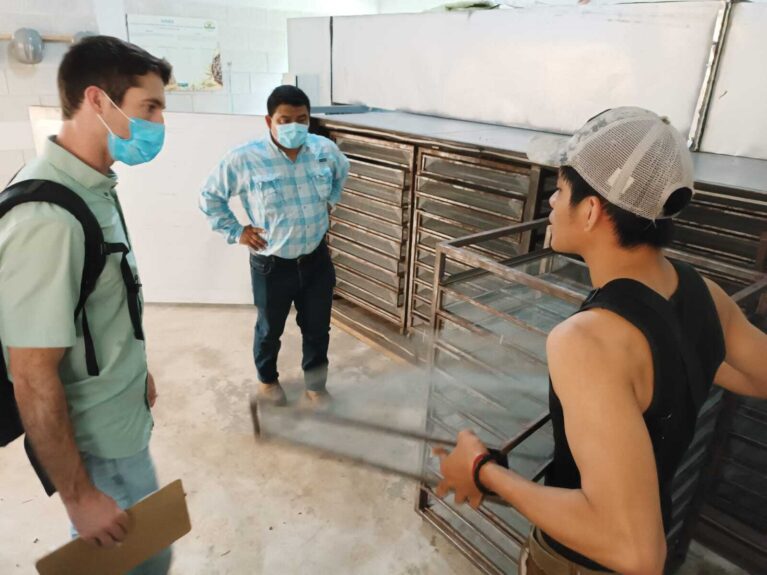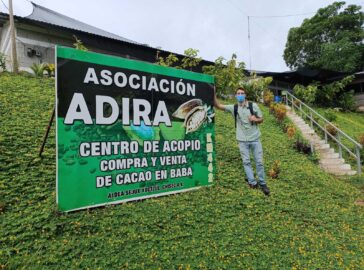Supporting Guatemalan Cardamom Producers to Dry Product More Efficiently
According to the Cardamom Producers Association of Guatemala (CARDEGUA), over 350,000 smallholder farmers in Guatemala depend on the spice as their principal source of income. According to the International Trade Center (ITC), in 2019 alone, the industry generated over $600 million for the country’s economy.

The drying of cardamom, as a preservation method, contributes to deforestation in the Alta Verapaz Department. Firewood is currently the primary source of biomass to power traditional dryers. To help mitigate this EWB-USA, in partnership with the The USAID-funded John Ogonowski and Doug Bereuter Farmer-to-Farmer Program Farmer-to-Farmer Program, is working with volunteers to assess cardamom dryers and the drying process and recommend ways to sustainably improve cardamom drying.
This assessment has led to major challenges in Guatemala’s cardamom industry including deforestation, increased processing costs, and a loss of quality that stems from the use of outdated, inefficient wood-burning dryers.
In the harvesting process of cardamom, it is critical that it is dried within 48 hours of harvest to maintain the flavour, colour, and market value for export sales. This has led to a proliferation of small antiquated drying facilities throughout Guatemala, which use locally collected firewood.
In 2017 Ingenieros Sin Fronteras -Guatemala partnered with Heifer International and the Milwaukee School of Engineering’s EWB-USA student chapter to investigate the problem and propose possible improvements in the cardamom drying process. There have been some improvements made, such as the review of use of turbulizers which improve the burner efficiency and the introduction of electric- and gas-powered burners which eliminates the use of firewood.
EWB-USA’s Farmer-to-Farmer assignments in Guatemala seek to continue and expand upon this original work. EWB-USA will host a total of 12 volunteers through March 2023 in the Alta Verapaz region of Guatemala to support this project.

One EWB-USA volunteer, George Obeng-Akrofi a Ph.D. student at Iowa State University, spent two weeks in Guatemala to assess traditional firewood-powered cardamom dryers. The intention of his work was to propose recommendations that would improve the operation of these dryers by enhancing the uniformity of the dried product and reducing contamination from foreign matter and smoke.
While in Guatemala George met with Heifer International and interviewed local dryers. He then assessed a traditional firewood dryer, and reviewed the ventilation, the state of burners and the recirculating conduits.
“My motivation for volunteering to be a part of this is because of my exposure to similar drying systems in Ghana and the experience I gain from the post-harvest research group in the Agricultural and Biosystems Engineering at ISU,” said George. “I look forward to the gains that each volunteer will bring on board to help with the sustainable production of cardamom in Guatemala.”
Harvest and drying season begins in September and EWB-USA will be sending a large number of volunteers during this season to observe the drying process in real time.
Learn more and or apply to be a Farmer-to-Farmer volunteer here